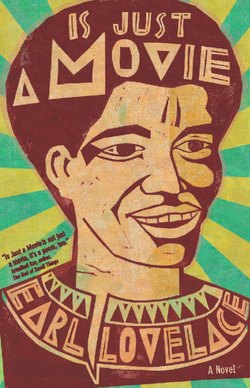Читать книгу Is Just a Movie - Earl Lovelace - Страница 7
На сайте Литреса книга снята с продажи.
ОглавлениеI, Kangkala
My name is Kangkala, maker of confusion, recorder of gossip, destroyer of reputations, revealer of secrets. In the same skin, I am villain and hero, victim and victor.
I am a true-true kaisonian.
I reduce the powerful by ridicule. I show them their absurdities by parody. I make their meanings meaningless and give meaning to meaning. I dance bongo on top the graves of the mighty. I am the Dame Lorraine presenting in caricature the grotesque of the wicked, the deformity of the stupid, the obzocky of gluttony. I show the oppressors themselves misshapen: gros toto, gros titi, gros bondage. Yes, I portray the big-stones man: a bag of boulders bulging from my pants, I am the big-foot, sore-foot man, the big-bottom, big-breasted, big-belly woman. I am the dispenser of afflictions.
But I was born again by a slip of the tongue when one night in the kaiso tent, as I am preparing to sing my song, for the benefit of foreigners in the audience, the Master of Ceremonies introducing me, proceeded to make his announcement with an American twang. He said, “Ladies and gentlemen, this is the song, and this is your singer, King Kala.”
So, suddenly, in the interstice, or shall I say the interspluce of this mispronunciation of Kangkala brought on by this Trinidadian fella wanting to sound American, calling Kang King, I was reborn to a new vision. It was in the middle of the time of the uprising we called Black Power. I don’t remember exactly what song I was going to sing, which big shot I was going to lash, whose business I was going to expose; but, that night, inspired by the MC’s error of my name, a grander role fell to me. The mockery was over, the double entendre at an end. I take off my jacket and roll up my sleeves. I would become the recorder of the people’s story, singer of their praises, restorer of their faith, keeper of their vexation, embalmer of their rage. I became the poet of the revolution.
Then the state of emergency was declared. The heroes made their triumphant surrender. Then they disappeared. Some skipped over to religion, some ran back to their trade union, some fly back to Africa, some sailed into electoral politics, one take up a piece of chalk and with the walkway his blackboard began to lecture in the university of Woodford Square. But the stage was no longer our own. The show was over. I tried to sing them into presentness, to invoke them with song:
Oh, Mastifay, Mastifay, meet me by the Quay d’Osay
Cutouter, Cutouter, meet me by Green Corner
But everything was against me. I was singing, but nothing came of my songs. Then that too ended, not a sound came from my voice, not a new note spun from my head.
I looked around to see those who had dreamed with me steaming into safe harbors. They rebuilt the pyramids, they reconstructed Hanuman, they parted the ocean and stuffed the Middle Passage back into oblivion. All that time my aunt Magenta is wrestling with the angel, saying with a fierce loyalty and hope that I could not fathom, “I will not let you go until you bless me.” The angel continued to struggle. I didn’t know what to do. I thought it was I alone who was left believing – in believing. I was beginning to panic. I didn’t know where I was going. I begin to look around for a harbor. And then I witnessed the exquisite choreography of Sonnyboy’s dying.
